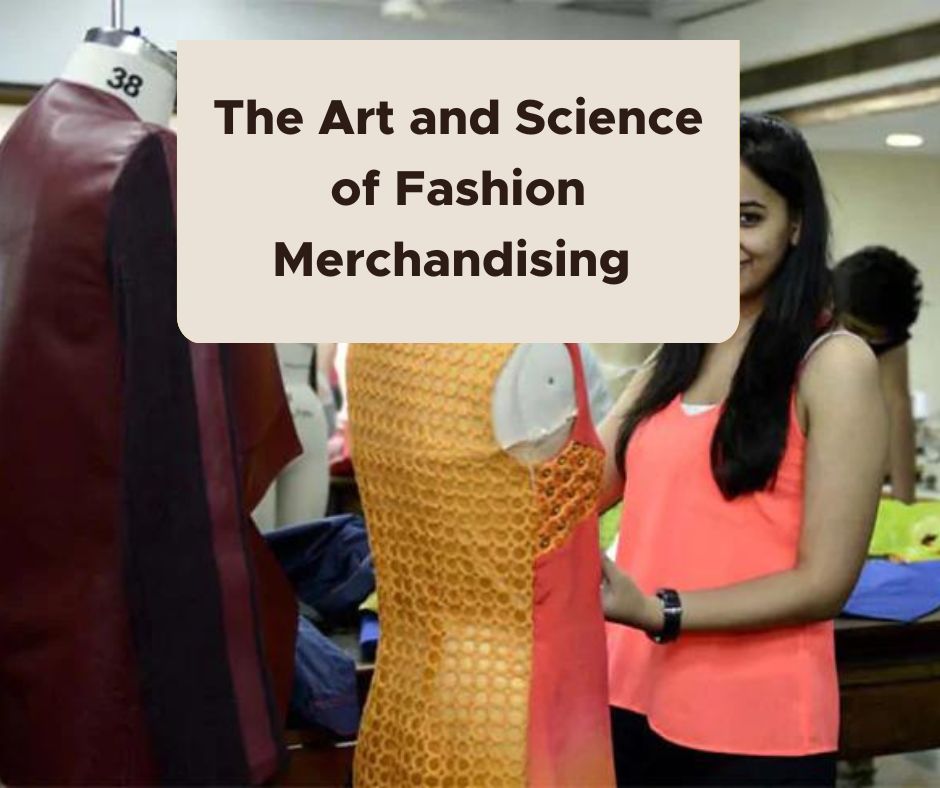The fashion industry is undergoing a remarkable transformation thanks to the rise of sustainable fashion startups. These emerging businesses are redefining style and aesthetics and championing environmentally friendly practices and customer engagement. Despite facing challenges like limited resources and access to sustainable suppliers, their unwavering commitment to sustainability from the outset gives them a significant advantage over established fashion companies. Fortunately, a world of options awaits after a fashion design course for a diverse Career in Fashion Designing.
Advantages Startups Have in Adopting Sustainable Processes
- More Adaptable and Nimbler: Startups possess a unique advantage – they are more adaptable and nimbler in their business processes. This agility allows them to prioritize sustainability from the outset, seamlessly integrating new practices without the constraints of complex supply chains or extensive manufacturing systems.
- Lack of Legacy Systems: Unlike well-established fashion companies, startups do not grapple with legacy systems that hinder change. They can design their operations with sustainability as a core principle, benefiting from a clean slate that enables them to innovate and integrate eco-friendly practices effectively.
- Cost Factors: Sustainability often demands initial investments in new technologies, materials, and processes. Retrofitting existing systems can be relatively inexpensive for established businesses. In contrast, startups with lower initial costs can build their business models with sustainability in mind, making it an inherent part of their operations.
- Meeting Consumer Demands: Consumer expectations are evolving rapidly, with an increasing focus on ethical and sustainable practices in fashion. Being more agile and attuned to market changes, startups can fulfil this growing demand by building brand identities centred on sustainability. In contrast, established businesses may need help to adapt their existing models and brand perceptions to meet shifting consumer expectations.
Actions Taken by Sustainable Fashion Startups (A Multi-step Approach)
- Sustainable Materials: Sustainable fashion startups prioritize using eco-friendly materials like recycled textiles, organic cotton, and innovative alternatives like TENCEL or PIATEX (made from pineapple fibres). They carefully select suppliers and manufacturers who align with their sustainability principles.
- Ethical Manufacturing: These startups place a premium on safe working conditions, ethical labour practices, and fair worker compensation. Some opt for local manufacturing to reduce carbon emissions and gain better control over the production process.
- Waste Reduction: Startups aim to minimize waste throughout production by eliminating fabric waste, reusing scraps, and repurposing resources. Some embrace the principles of the circular economy by launching upcycling or take-back programs.
- Marketing and Education: Sustainable fashion startups educate consumers about the environmental and social impacts of the fashion industry. They raise public awareness about sustainable fashion through marketing initiatives, social media, and partnerships with influencers or sustainability advocates.
- Transparency: Transparency is a cornerstone of sustainable fashion startups. They openly share information about their manufacturing processes, supply chains, and material sources. Some even use blockchain technology to ensure the authenticity and traceability of their products.
Challenges Faced by Startups in Sustainable Fashion
- Scaling and Cost: Scaling sustainable production can be expensive due to the higher costs of eco-friendly resources and the investments required in environmentally friendly production methods. Often operating with limited resources, startups must carefully balance their sustainability goals with financial considerations.
- Consumer Awareness and Perception: While consumers are growing interested in sustainable fashion, many still prioritize affordability and convenience over sustainability. Startups need to educate consumers about the value and benefits of sustainable fashion to increase demand and shift consumer behavior.
- Support for Sustainable Fashion: Startups in sustainable fashion require substantial support to overcome their specific challenges. Government agencies and non-profit organizations should offer a range of initiatives to assist and empower these entrepreneurs.
- Grants and Financing: Access to grants, financing programs, and financial incentives is crucial for startups in sustainable fashion to overcome the economic challenges associated with eco-friendly production. Governments, impact investors, and philanthropic organizations often provide grants, loans, and other financial resources specifically supporting sustainable fashion initiatives.
- Policy and Regulation: Adapting to evolving policies and regulations to promote sustainability in the fashion industry is challenging for startups prioritizing sustainable practices. Governments worldwide are increasingly implementing stricter rules and guidelines to address environmental and social concerns in the fashion sector.
- Sustainable Materials Supply: Securing a dependable and consistent supply of sustainable materials can take time and effort, particularly for smaller firms with limited purchasing power. Startups often rely on partnerships and certifications to ensure the authenticity and sustainability of their resources.
Notable Organizations Supporting Sustainable Fashion
Several organizations actively support sustainable fashion startups:
- Fashion Revolution: An international movement promoting a more accountable and sustainable fashion industry, offering funding to sustainable fashion startups.
- Sustainable Apparel Coalition (SAC): An industry-wide partnership dedicated to reducing the environmental and social impacts of the clothing and footwear industries, providing support, information, and tools for sustainable practices.
- Global Fashion Agenda: A non-profit organization promoting sustainability in the fashion sector, hosting the Copenhagen Fashion Summit and offering initiatives and programs to support sustainable entrepreneurs.
- Textile Exchange: An international non-profit organization working to accentuate the adoption of preferred fibres and ethical business practices in the textile sector, providing sustainable entrepreneurs with access to resources, certifications, and networking opportunities.
Collaboration Between Established Designers and Brands and Emerging Sustainable Fashion Startups
Collaboration between established designers and brands and emerging sustainable fashion startups is a growing trend:
- Stella McCartney: Renowned for her commitment to environmentally friendly clothing, Stella McCartney has collaborated with Kering, a luxury conglomerate, which supports her sustainable initiatives.
- Eileen Fisher: This fashion brand actively collaborates with emerging businesses and organizations through its “Eileen Fisher Community Partnerships” program.
- H&M Foundation: This non-profit organization promotes sustainable and circular solutions in the fashion industry by supporting entrepreneurs and innovators through initiatives like the Global Change Award.
- Kering: A leading luxury goods group, Kering supports sustainable businesses through programs like the Kering Innovation Award, providing mentoring, financial assistance, and industry visibility.
Advantages of Sustainable Fashion Startups Over Fast Fashion Giants
Sustainable fashion startups have several key benefits:
- Brand Identification: Startups can establish their brand identity around sustainability from the beginning, appealing to consumers seeking ethical and eco-friendly solutions. Their unwavering commitment to sustainability distinguishes them from traditional fast fashion manufacturers.
- Innovation and Agility: New businesses are often more innovative to changing consumer preferences and emerging sustainable practices. They can experiment with cutting-edge materials, production processes, and business concepts, giving them a competitive edge in the dynamic fashion industry.
- Consumer Engagement and Trust: Consumers increasingly prioritize sustainability, ethical behaviour, and transparency. Startups that align with these values can build trust and loyalty among conscientious consumers, fostering long-term relationships and positive word-of-mouth.
- Changing Consumer Perceptions: Consumer perceptions and purchasing patterns shift, favoring sustainable and ethical brands. As awareness grows about fast fashion’s environmental and social impact, consumers seek alternatives that align with their values.
- Rise of Conscious Consumption: Conscious consumerism, where buyers prioritize purchases positively impacting the environment and society, is gaining traction. Consumers actively seek brands that share their values and are willing to pay more for sustainable products.
In conclusion, sustainable fashion startups are at the forefront of transforming the fashion industry. Their commitment to sustainability, agility, innovation, and consumer engagement positions them as key drivers of change in fashion. As consumer demand for ethical and eco-friendly fashion continues to rise, startups have a unique opportunity to shape the industry’s future, challenging the traditional fast fashion giants and influencing consumer behavior towards more sustainable choices. These startups are not just businesses but pioneers in creating a more sustainably responsible fashion ecosystem.
If you want to become a fashion entrepreneur, worry not, we have got your back. At the International College of Fashion, you can enroll in our fashion entrepreneurship course and give your career wings to fly.










